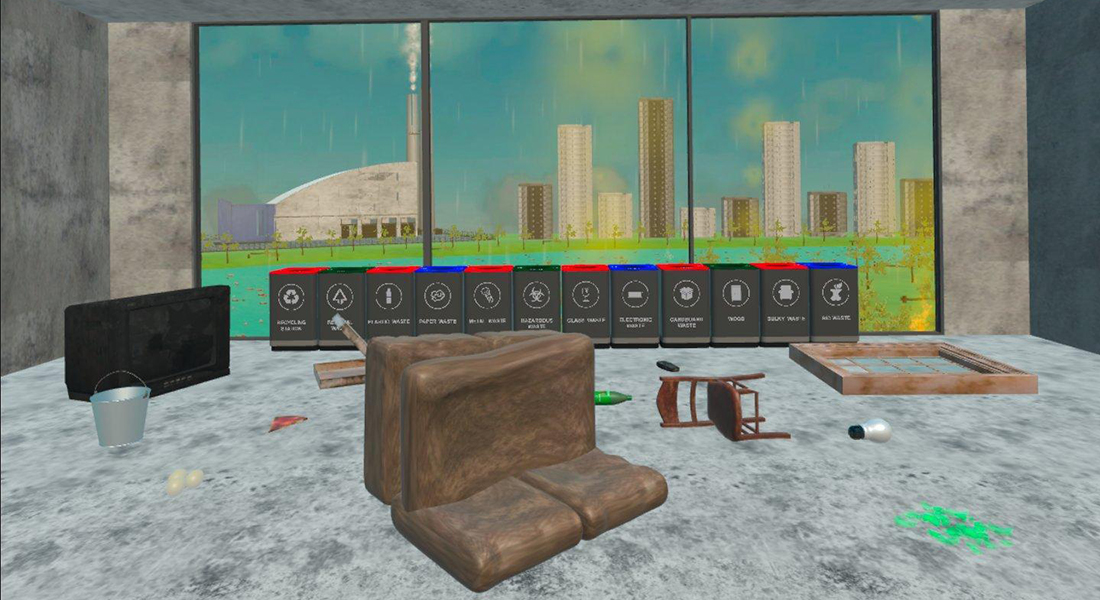Waste management

This project aims to generate new knowledge in regards to the use of the Productive Failure (the positive learning effect produced when you are allowed to fail at a task before being helped in Virtual Reality. It also focuses on how this interacts with Exaggerated Feedback (changes in the Virtual environment caused by the participant’s actions, that are shown in an exaggerated manner, e.g., showing the effects of mishandling plastic waste for 10 years, when the participant only did it once. The study’s aim is to create a better understanding of how to develop Virtual Reality simulations that positively impact learning and behaviour.
We are conducting this study as a supervised high school intervention. The format is a between-subjects 2x2 factorial design, with 4 data points: pre-survey/test, in-simulation performance, post-survey/test, and follow-up measure. The 2x2 measures are: 2x (Method: Direct instruction versus Productive Failure) x 2 (Feedback: Exaggerated feedback versus No exaggerated feedback). The waste management task itself is an exercise where the participants enter a room with waste strewn around at random, and they have to clean up this room by sorting the waste into 12 different categories (in accordance with the Copenhagen waste management standard): Bio Waste, Bulky Waste, Bulky Waste (Wood), Cardboard Waste, Electronic Waste, Glass Waste, Hazardous Waste, Metal Waste, Paper Waste, Plastic Waste, Residual Waste, Recycling Station. The Copenhagen standard also includes Bulky Waste (PVC) and Garden Waste, but these categories have been left out from the experiment.
We have been gathering the following measurements from the students: In the pre-survey, demographic information will be collected (age, grade, gender, experience with VR). We will be measuring participants self-efficacy (towards waste management; pre-survey, post-test), participant’s response efficacy (towards waste management; pre-survey, post-test), risk perception (towards climate change; pre-survey, post-survey), a waste management knowledge test (pre-test, post-test), waste management intention (pre-survey, post-survey ); waste management behaviour (pre-survey, post-survey), cognitive load (post-survey), values (towards waste management and climate change; pre-survey, post-survey), and spatial presence (post-survey).So far we have collected data from a total of N = 134 participants, out of which 98 were male, 33 female, and 3 non-binary).
